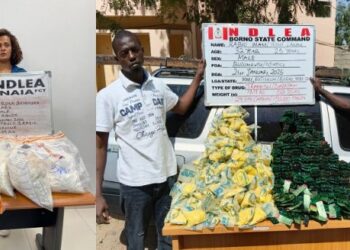Nigeria and Tanzania have recorded the highest fraud rates in Africa, despite an overall decline in fraud across the continent, according to the Q1 2025 Identity Fraud Report released by global verification company Sumsub.
The report shows that while Africa’s general fraud rate dipped slightly from 3.50% to 3.42%, both Nigeria and Tanzania witnessed significant year-on-year increases. Tanzania’s fraud rate surged to 4.89%, while Nigeria followed with 4.44%, making them the top two countries with the highest recorded fraud activity on the continent.
The rise in fraud is attributed largely to the growing use of synthetic identities—false identities created using AI-powered tools and digital forgery methods. This trend is replacing traditional scams such as document forgery, which have seen a decline due to stronger verification technologies.
According to the report, fraud now accounts for over 2% of all verification attempts in Tanzania—a 184% increase. Nigeria saw a 192% increase, with fraud making up 1.5% of verification attempts.
Hannes Bezuidenhout, Sumsub’s Vice President of Sales for Africa, described the shift as a major evolution in the continent’s fraud landscape. “Enhanced verification tools have significantly reduced traditional document forgery, but criminals are now turning to more advanced techniques like synthetic IDs and AI-driven scams,” he said.
Interestingly, while overall fraud rates increased in Nigeria, the country recorded a major drop in document forgery—down nearly 80%—thanks to improved identity verification systems. South Africa posted a similar trend, with forgery cases dropping by over 73%.
Kenya and Ghana also recorded substantial declines in document forgery, with reductions of 45% and 50%, respectively. However, synthetic fraud is on the rise across these markets. In South Africa, for example, synthetic document fraud remains below 0.3% of total cases but still rose by an alarming 480% year-on-year.
While some countries are successfully reducing traditional fraud, the sharp rise in synthetic identity cases suggests a shift in criminal tactics. Sumsub warns that although Africa does not yet lead globally in synthetic fraud volume, the upward trend is a serious concern that requires urgent attention.
The report concludes that Africa’s fraud environment is undergoing a transformation. Although better systems are limiting older methods, the emergence of AI-powered scams calls for more adaptive and advanced digital security solutions.












